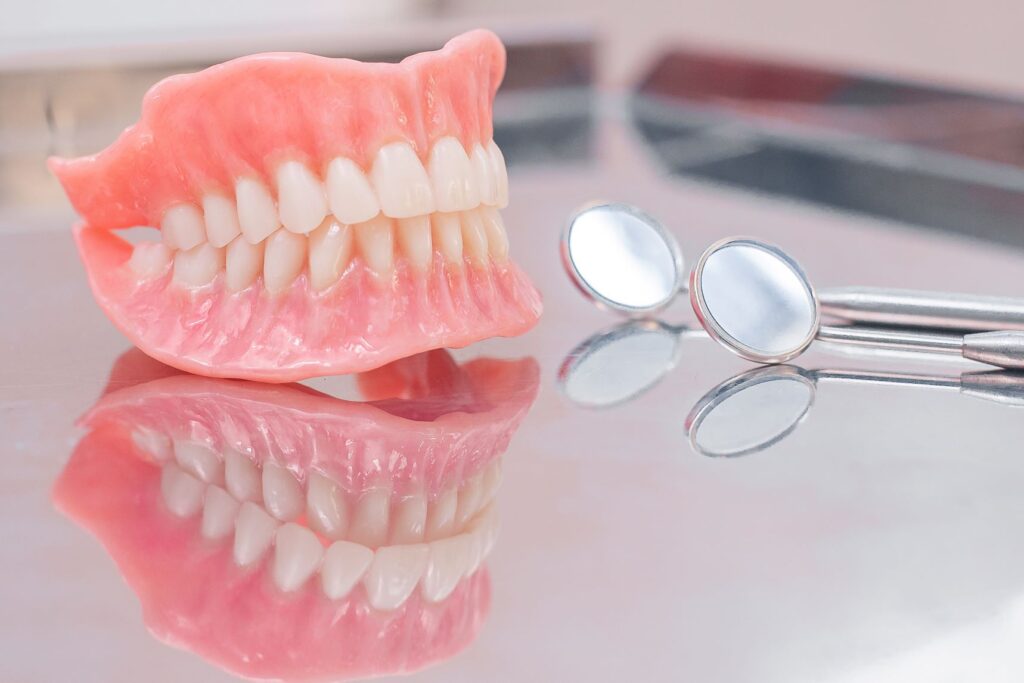
Dentures are a great way to rebuild your smile after tooth loss because they’re versatile prosthetics that can be fully customized to restore some or all of your missing teeth simultaneously. With them in place, you don’t have to worry about the gaps in your grin impacting your ability to eat and speak, which can also boost your confidence.
Although they provide many benefits, these artificial teeth aren’t intended to last forever. Eventually, they wear down or stop fitting correctly and must be replaced. Continue reading to learn three signs that let you know it’s time to consider getting new dentures!
Indicator #1: They Keep Slipping
Your dentures are tailor-made at each step of their creation to match your natural teeth and fit like a glove. However, your jawbone begins to thin without roots in place to stimulate new bone growth each time you bite down. In time, the bony ridges in your mouth can thin enough that your prosthetics can no longer form a tight enough bond to remain firmly in place.
In some cases, your dentist can reline them so that you can continue wearing them, but if your restoration is older and you’ve already had them mended previously, it’s probably time to get a new set.
Indicator #2: They Look Damaged
One of the greatest advantages of wearing artificial teeth is that they enhance your appearance so you look and feel like your best self. They’re usually made from durable porcelain with an acrylic base that can be customized to match your natural teeth and gums so no one’s the wiser.
That said, after years of daily use, they can eventually become chipped, cracked, or discolored. If you’re no longer pleased with how your reflection looks when you wear them, you might worry about how others will perceive you, too. Replacing old-looking dentures can enhance your self-esteem so you don’t feel as anxious.
Indicator #3: You Have Sores
Artificial teeth that don’t fit properly tend to slide around in your mouth when you try to eat or speak with them. The extra friction caused by an unstable prosthetic can rub raw spots in the tender tissues inside your mouth, like your gums or the insides of your lips or cheeks. Bacteria can infect these if they’re not addressed promptly or given a chance to heal, increasing the risk of gum disease. Switching to implant dentures or getting a fresh restoration can reduce the likelihood of dental dilemmas.
If you’re still unsure whether you need new dentures, the best way to find out for certain is to schedule a consultation with your dentist!
About the Author
Dr. Colin Holman takes pride in helping patients improve their daily quality of life by enhancing their oral health. He earned his DDS at the University of Oklahoma College of Dentistry and is an active member of the American Dental Association and other professional organizations. He takes the time to get to know you so that he can offer treatment plans that reflect your unique needs. His comfortable office is equipped with modern amenities, like free wi-fi, so you and your family feel at ease during your visit. Then, he utilizes state-of-the-art equipment to deliver accurate, long-lasting results. If you’re considering new dentures, you can request a consultation on the website or call (405) 735-6600.




